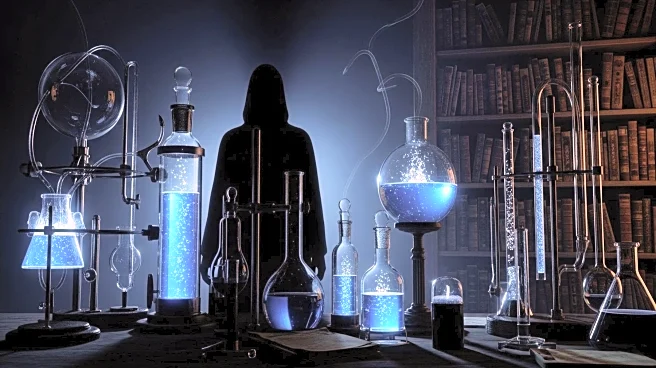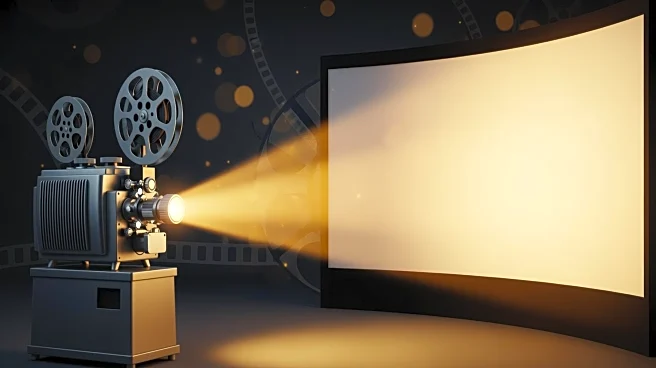What is the story about?
What's Happening?
Guillermo del Toro's adaptation of Frankenstein is set to release in theaters on October 17, followed by a Netflix release on November 7. The film, which del Toro has been developing for over 20 years, remains faithful to Mary Shelley's original novel while introducing new characters and plot twists. The story centers around Victor Frankenstein, played by Oscar Isaac, who creates a creature portrayed by Jacob Elordi. The film delves into themes of generational trauma, as Victor's abusive upbringing influences his treatment of the creature. Mia Goth stars as Elizabeth Harlander, adding depth to the narrative with her otherworldly presence. The film is characterized by its gothic romance style, reminiscent of del Toro's previous work, Crimson Peak.
Why It's Important?
Del Toro's Frankenstein offers a fresh take on a classic story, highlighting the enduring impact of generational trauma. By exploring the cycle of abuse and the quest for redemption, the film resonates with contemporary audiences who may relate to these themes. The adaptation also showcases del Toro's signature style, blending horror elements with emotional depth, which could attract both fans of the original novel and new viewers. The film's release on Netflix ensures wide accessibility, potentially influencing public discourse on family dynamics and personal growth.
What's Next?
Following its theatrical release, Frankenstein will be available on Netflix, allowing for broader audience engagement. The film's exploration of complex themes may spark discussions on social media and among critics, potentially influencing future adaptations of classic literature. Del Toro's unique storytelling approach could inspire other filmmakers to revisit traditional narratives with modern sensibilities, contributing to the evolution of the horror and gothic romance genres.
Beyond the Headlines
Del Toro's Frankenstein not only revisits a classic tale but also challenges viewers to consider the ethical implications of creation and the responsibilities of parenthood. The film's portrayal of Victor Frankenstein as both a creator and a flawed individual invites reflection on the nature of humanity and the potential for forgiveness. By presenting the story in two parts, del Toro emphasizes the importance of understanding multiple perspectives, encouraging audiences to empathize with both Victor and the creature.
















